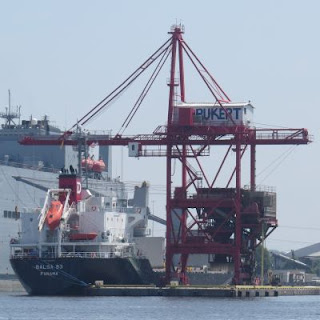The 2022 National Working Waterfront Network’s Conference will take place from July 19th to July 21st, 2022 in Boston, MA at UMass Boston’s oceanfront campus.
The National Working Waterfront Network’s Conference is the only national event that brings together people from across North America to connect with one another and showcase (and initiate) initiatives that protect and promote working waterfronts.
Working waterfronts include waterfront lands, waterfront infrastructure, and waterways that are used for water-dependent activities, such as ports, marinas, small recreational boat harbors, and fishing docks.
By design, the conference moves around the country to highlight the diversity of the nation’s working waterfronts; to foster a cross-fertilization of ideas, knowledge, and solutions; and to generate strategic partnerships.
The National Working Waterfront Network will be partnering with the Urban Harbors Institute (UHI) at the University of Massachusetts Boston to host the 2022 conference.
Conference Sessions
Plenary Sessions, which will feature leaders and keynote presenters from the working waterfronts and waterways community.
Traditional Concurrent Sessions, which will include 15-20 minute speaker talks accompanied by PowerPoint presentations. Concurrent sessions will be arranged from individual abstracts submitted on similar topics.
Breakout “Panel” Sessions, which will include 90-minute breakout sessions with a panel of speakers on topics related to a specific theme.
Roundtable Discussions, which will include 90-minute breakout sessions of a facilitated and interactive discussion with engaged attendees on specific topics.
Formal Poster Session, which will feature all NWWN Conference poster presentations.
Creative Communication Installations, includes an individual or team presentation, discussion or performance of art, media, film, poetry, etc.
Field Trips
As a part of this conference, the NWWN has planned various field trips on the second day Wednesday, July 20th. In addition, there will be full-day field trips happening prior to the conference on Monday, July 18th as well.
The National Working Waterfront Network (NWWN) is a nationwide network of businesses, industry associations, nonprofits, local governments and communities, state and federal agencies, universities, Sea Grant programs, and individuals dedicated to supporting, preserving, and enhancing America’s working waterfronts and waterways.
For more information, visit nationalworkingwaterfronts.com

